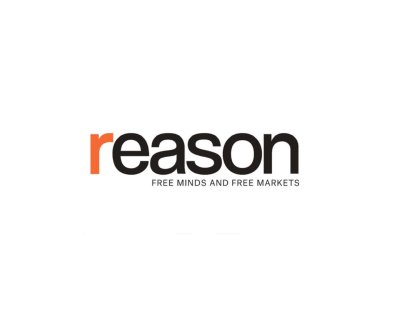Court Holds Anti-DEI Executive Orders Don’t Facially Violate First Amendment
Some short excerpts from Friday’s long decision by Judge Timothy Kelly (D.D.C.) in National Urban League v. Trump:
After taking office this January, President Trump promptly issued three executive orders addressing diversity, equity, and inclusion. Some provisions are internal to the government, directing Executive Branch officials to create certain lists or produce certain reports to advise the President. Others reach into the private sector—for example, by requiring grantees and contractors to certify that they do not operate DEI programs that violate federal antidiscrimination law. And still others straddle the line by directing agencies to terminate some federal grants and contracts, an intra-governmental directive that affects other entities.
Plaintiffs are three nonprofit organizations that incorporate DEI into their work. They also contract with and receive funding from several federal agencies. Concerned that President Trump’s executive orders will prevent them from fulfilling their organizational missions, Plaintiffs sued to enjoin a host of agencies and officials from enforcing the orders. They moved for a preliminary injunction over a week later, arguing that eight provisions of the orders are unconstitutional under the First or Fifth Amendment—or both. More specifically, Plaintiffs contend that the challenged provisions are impermissibly vague, chill protected speech, and amount to unlawful viewpoint discrimination.
But Plaintiffs have not shown that they are likely to succeed on any of those claims, so the extraordinary relief of a preliminary injunction is unwarranted. For half the challenged provisions, Plaintiffs fail to establish a prerequisite to success on the merits: standing. Presidential directives to subordinates that inflict no concrete harm on private parties—or at least not on these parties—do not present a justiciable case or controversy. And for the remaining provisions, Plaintiffs’ constitutional claims falter for various reasons. Two throughlines explain most of them. The government need not subsidize the exercise of constitutional rights to avoid infringing them, and the Constitution does not provide a right to violate federal antidiscrimination law. And those pressure points are even harder to overcome for Plaintiffs, who bring facial rather than as-applied challenges.
The motion before the Court is not about whether DEI policies, however defined in a given context, are good public policy. Nor is it about whether specific DEI initiatives comply with antidiscrimination law. Instead, it is about whether Plaintiffs have shown that they are entitled to a preliminary injunction prohibiting enforcement of the executive orders at issue. Because they are not likely to prevail on the merits, the Court will deny the motion.
The court begins by summarizing the Executive Orders:
Within two days of his inauguration, President Trump … issu[ed] three executive orders about “gender ideology” and “diversity, equity, and inclusion.” See Ending Radical and Wasteful Government DEI Programs and Preferencing, 90 Fed. Reg. 8339 (codified Jan. 29, 2025) (“Government DEI Order”); Defending Women from Gender Ideology Extremism and Restoring Biological Truth to the Federal Government, 90 Fed. Reg. 8615 (codified Jan. 30, 2025) (“Gender Ideology Order”); Ending Illegal Discrimination and Restoring Merit-Based Opportunity, 90 Fed. Reg. 8633 (codified Jan. 31, 2025) (“Illegal Discrimination Order”).
The first order purportedly aims to eliminate “illegal and immoral discrimination” that has “infiltrat[ed]” “virtually all aspects of the Federal Government.” To implement that directive, the Director of the Office of Management and Budget must “coordinate the termination of all discriminatory programs, including illegal DEI … mandates, policies, programs, preferences, and activities in the Federal Government.” Part of that implementation plan, moreover, calls on agencies to “terminate, to the maximum extent allowed by law,” the following: (1) “all DEI, DEIA and ‘environmental justice’ offices and positions”; (2) “all ‘equity action plans,’ ‘equity’ actions, initiatives, or programs,” and “‘equity-related’ grants or contracts”; and (3) “all DEI or DEIA performance requirements for employees, contractors, or grantees.” Id. § 2(b)(i) (“Equity Termination Provision”). This order also directs agencies to give the OMB Director a list of all “Federal grantees who received Federal funding to provide or advance DEI, DEIA, or ‘environmental justice’ programs, services, or activities since January 20, 2021.” Id. § 2(b)(ii)(C) (“List Provision”). And the order states that its implementation must be “consistent with applicable law.”
Issued the same day, the second order addresses “gender ideology,” defined as the displacement of “the biological category of sex with an ever-shifting concept of self-assessed gender identity.” Those “who deny the biological reality of sex,” the order begins, have allowed “men to self-identify as women and gain access to intimate single-sex spaces and activities designed for women.” And because the Trump administration believes that “eradicat[ing] the biological reality of sex … depriv[es]” women “of their dignity, safety, and well-being,” the order gives agencies several marching orders. Two are relevant here. First, agencies “shall take all necessary steps, as permitted by law, to end the Federal funding of gender ideology.” Id. § 3(e) (“Gender Funding Termination Provision”). And second, they must “assess grant conditions and grantee preferences and ensure grant funds” from the federal government “do not promote gender ideology.” Id. § 3(g) (“Promoting Gender Ideology Provision”). As with the first order, implementation must be “consistent with applicable law.”
The third order returns to DEI more generally. It explains that both the federal government and private sector have adopted “race- an
Article from Reason.com

The Reason Magazine website is a go-to destination for libertarians seeking cogent analysis, investigative reporting, and thought-provoking commentary. Championing the principles of individual freedom, limited government, and free markets, the site offers a diverse range of articles, videos, and podcasts that challenge conventional wisdom and advocate for libertarian solutions. Whether you’re interested in politics, culture, or technology, Reason provides a unique lens that prioritizes liberty and rational discourse. It’s an essential resource for those who value critical thinking and nuanced debate in the pursuit of a freer society.



